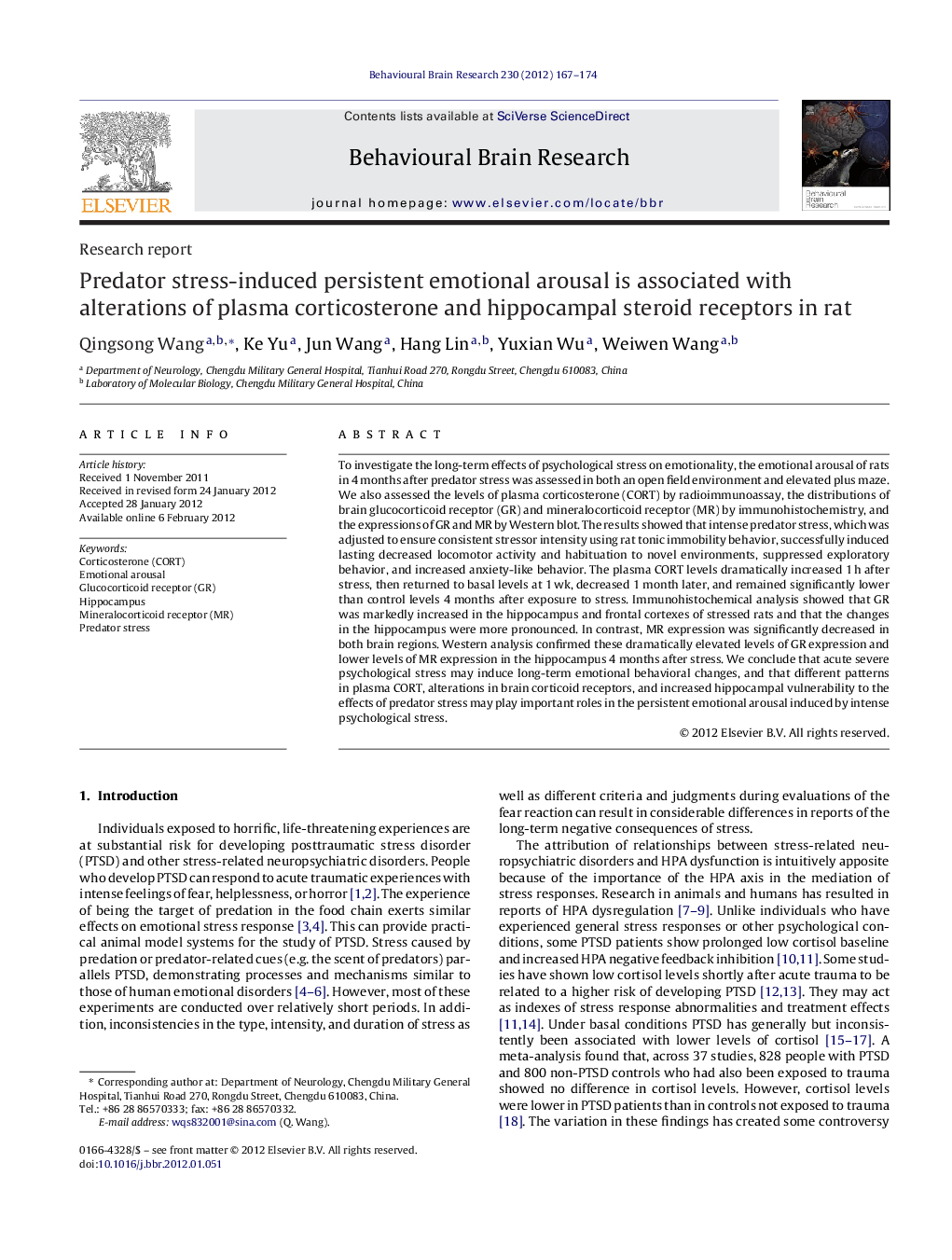| Article ID | Journal | Published Year | Pages | File Type |
|---|---|---|---|---|
| 6259562 | Behavioural Brain Research | 2012 | 8 Pages |
To investigate the long-term effects of psychological stress on emotionality, the emotional arousal of rats in 4 months after predator stress was assessed in both an open field environment and elevated plus maze. We also assessed the levels of plasma corticosterone (CORT) by radioimmunoassay, the distributions of brain glucocorticoid receptor (GR) and mineralocorticoid receptor (MR) by immunohistochemistry, and the expressions of GR and MR by Western blot. The results showed that intense predator stress, which was adjusted to ensure consistent stressor intensity using rat tonic immobility behavior, successfully induced lasting decreased locomotor activity and habituation to novel environments, suppressed exploratory behavior, and increased anxiety-like behavior. The plasma CORT levels dramatically increased 1Â h after stress, then returned to basal levels at 1Â wk, decreased 1 month later, and remained significantly lower than control levels 4 months after exposure to stress. Immunohistochemical analysis showed that GR was markedly increased in the hippocampus and frontal cortexes of stressed rats and that the changes in the hippocampus were more pronounced. In contrast, MR expression was significantly decreased in both brain regions. Western analysis confirmed these dramatically elevated levels of GR expression and lower levels of MR expression in the hippocampus 4 months after stress. We conclude that acute severe psychological stress may induce long-term emotional behavioral changes, and that different patterns in plasma CORT, alterations in brain corticoid receptors, and increased hippocampal vulnerability to the effects of predator stress may play important roles in the persistent emotional arousal induced by intense psychological stress.
⺠Predator stress adjusted by tonic immobility induced rat persistent emotional arousal. ⺠The predator stress induced interesting biphasic changes in plasma CORT levels. ⺠GR/MR changes revealed an increased hippocampal vulnerability to the predator stress. ⺠The stress induced a different pattern in CORT and corticoid receptors alterations. ⺠Independent CORT and GR/MR changes may be crucial for stress-induced emotionality.
